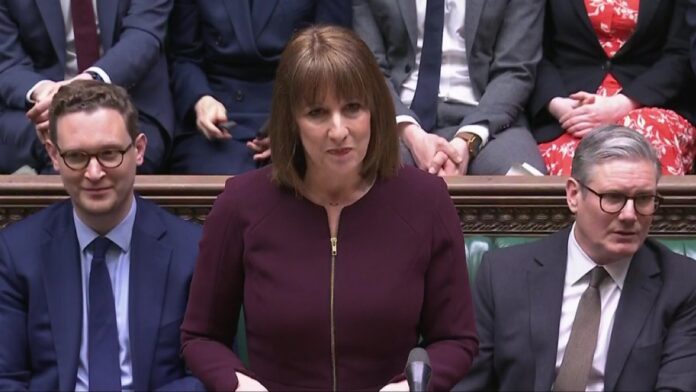Despite the Government’s planned welfare reforms, health-related benefits are still projected to grow three times faster than the economy as a whole – increasing by an average of 5.3% a year over the remainder of the 2020s says a report out this morning
The Centre for Policy Studies say that the Government’s plans pare forecast to only lower the cost of health-related welfare spending by £4.1 billion by 2029/30.
The total cost, assuming Labour’s plans are successful, is still set to reach £97.7 billion in 2029/30, up from £66.3 billion in 2023/24
The Think Tank says Labour must do more to reduce the Personal Independence Payment (PIP) caseload, looking at mental health claims in particular. Current projections estimate that the government’s plans will reduce the number claiming PIP by 400,000 as of 2029/30.
However, the overall number will still rise to 4.65 million people claiming some form of PIP, up from 3.7 million in January 2025.
Secondly they say the plans for young people are not ambitious enough. The current plan to remove the health element of Universal Credit (UC) to those aged 18-21 is sensible, especially since this group will receive additional help to find work and mental health support via the Youth Guarantee. The briefing proposes extending this policy to everyone under 25 or even under 30. There are 128,000 people aged 22-25 and 161,000 aged 26-29 that are on the health element of UC.
They estimate that returning the number of under-30s receiving the health element of Universal Credit to 2019 levels could save the government an additional £2 billion.
Alternatively, the Government could be more radical and look at abolishing or consolidating the health element of Universal Credit altogether.
Thirdly there is a rising number of children getting Disability Living Allowance for mental health conditions, flowing into PIP when they reach 18. Again, this has been increasing extremely rapidly, driven by an extremely sharp rise in the number of children diagnosed with learning difficulties and behavioural disorders.
Fourth, the current government has cancelled plans to reform the Work Capability Assessment (WCA), which the OBR and DWP say could have saved £1.6 billion and led to 400,000 people fewer on the health element of UC. Labour have pledged to come forward with their own proposals but this will not happen for three years. Rather than implement Conservative proposals, the government has decided to delay, a move which will cost the taxpayer money and create missed opportunities to help people back into work.
Daniel Herring, CPS Tax and Fiscal Researcher and briefing author, said:
‘The Government should be commended for at least beginning to address the problem of our spiralling welfare costs. Whether any concrete improvements can be made, given comments from Labour’s backbenches, remains to be seen.
‘As our research highlights, even if the proposed changes are implemented, the OBR still expects health-related welfare spending to be £97.7 billion in 2029/30, an almost 50% increase from £66.3 billion in 2023/24. Given the current state of the public finances, merely slowing the upward trajectory of spending is not enough.
‘Key areas are still being neglected, and the plans announced so far lack the ambition necessary to bring the cost of welfare under control and get Brits back to work. We hope this means these announcements are the first step, and not the limit of the government’s ambition.’







